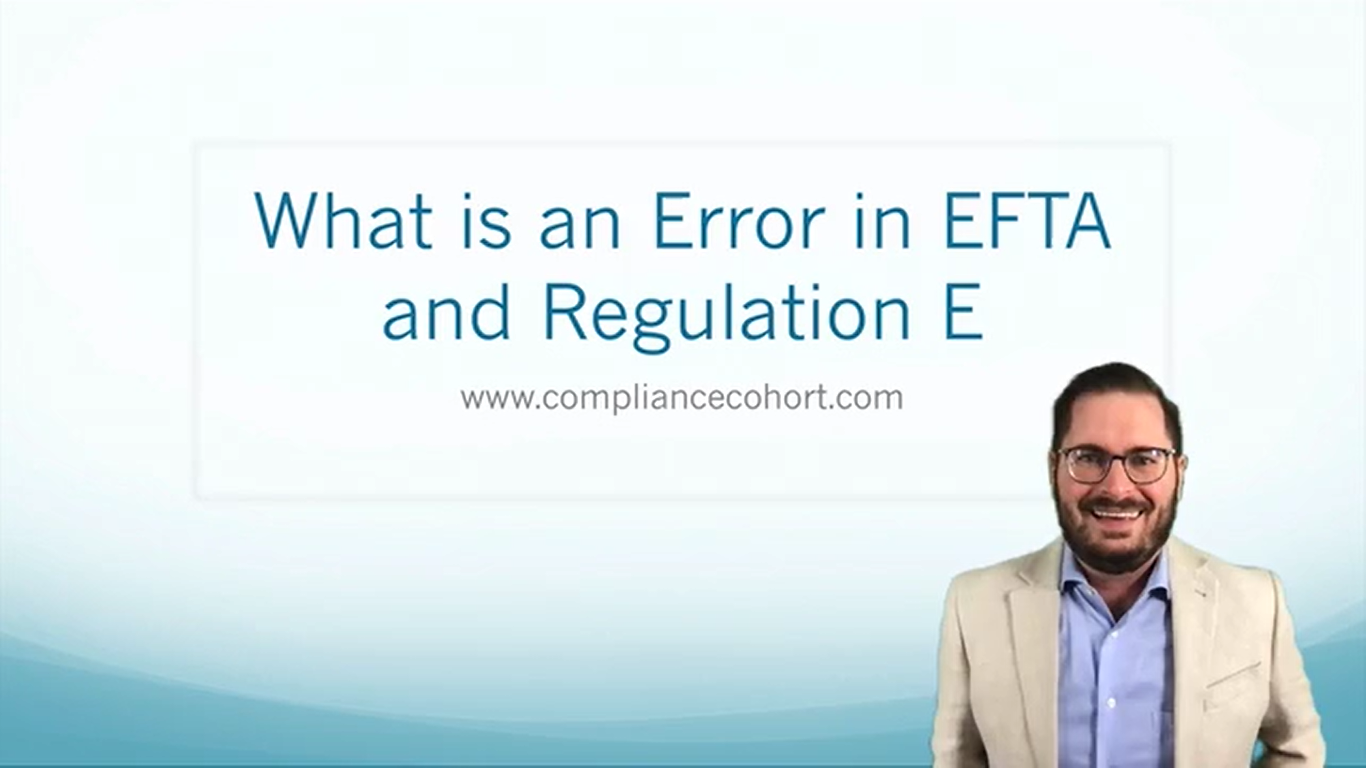In this Compliance Clip (video), Adam discusses whether or not electronic fund transfers (EFTs) that were initiated through fraud or robbery are considered unauthorized EFTs under Regulation E. Adam also cites examples of unauthorized EFTs, based from the CFPB’s FAQs on unauthorized electronic fund transfers. A transcript of this video is now available.
Welcome to the Compliance Cohort. We are a group of compliance professionals working to make compliance easier. Our goal is to take complex compliance concepts and put them in simple terms that apply to the real world. We are glad you have found us and look forward to collaborating in the future.
If you haven't done so already, make sure you sign up for our free membership where you get access to many member-only videos, articles, and other resources.





